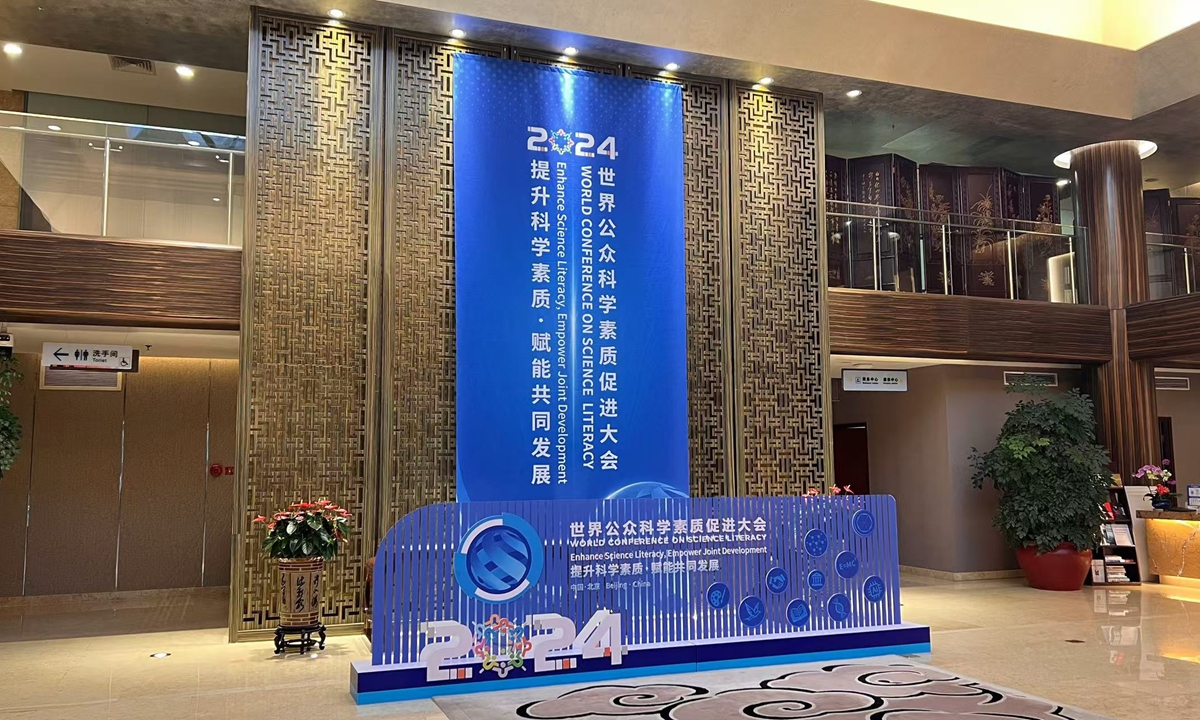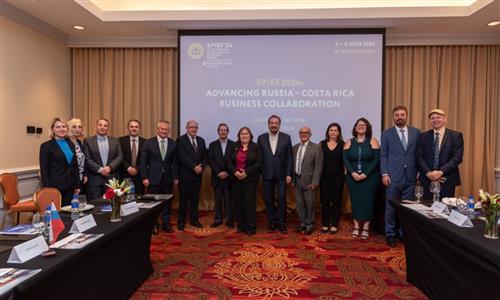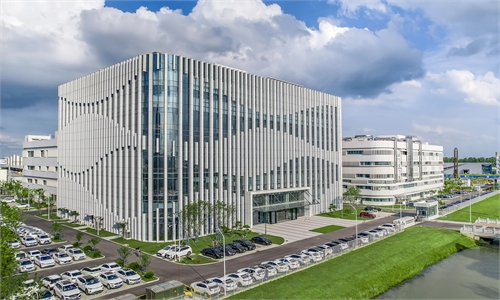SOURCE / PRESS RELEASE
Academicians, researchers share insights on promoting science literacy at conference in Beijing

World Conference on Science Literacy Photo: Leng Shumei/GT
How should we enhance the public science literacy in an era of rapid science and technology development? How would high public science literacy help realize sustainable development goals? What is the relationship between increasing population and quality and decreasing fertility desire? And how should we do science popularization work along with population aging?
These are topics heatedly discussed at the 2024 World Conference on Science Literacy (WCSL) held by the China Association for Science and Technology (CAST) in Beijing on Thursday and Friday.
The WCSL, an initiative launched by CAST in 2018, is dedicated to fostering an international platform for dialogue and collaboration in the enhancement of public scientific literacy.
Under the theme of "Enhance Science Literacy, Empower Joint Development," this year's conference aims to foster global dialogue on issues including the resolution of the United Nations International Decade of Sciences for Sustainable Development (2024-2033). It seeks to pool global insights to boost scientific literacy and drive social sustainability, while also expanding international exchanges in science, technology, and culture, the Global Times learned from the CAST.
Wan Gang, president of CAST, graced the event with his presence, alongside over 400 delegates and guests from 23 countries and 10 international organizations. The opening ceremony was presided over by He Junke, Executive President and Chief Executive Secretary of the Secretariat of CAST.
In his opening ceremony address on Friday, Wan outlined three key initiatives: fostering a shared understanding to cultivate momentum for global development, enhancing mutual learning to address global development challenges, and deepening collaborative actions to envision sustainable development.
Wan emphasized the importance of upholding principles of equality, mutual learning, dialogue, and inclusiveness.
He advocated for openness, trust, and cooperation, and called for leveraging the conference and the soon-to-be-established World Organization for Science Literacy (WOSL) as platforms to open a new chapter in international scientific literacy cooperation and the construction of a community with a shared future for humanity.
Science literacy in new era
Ezra Clark, special representative of the United Nations Educational, Scientific and Cultural Organization (UNESCO) and assistant director-general for Natural Sciences, emphasized the vitality of enhancing scientific literacy for addressing global challenges at the opening ceremony. "Today, we are facing unprecedented global challenges in areas such as climate change and public health ... The challenges are often complex, interconnected, and closely linked to science. These issues can amplify others, directly impacting our lives. Science literacy equips us with the knowledge and skills necessary to tackle these challenges and achieve the United Nations Sustainable Development Goals."
Clark highlighted that UNESCO actively promotes the enhancement of public science literacy through initiatives such as the Recommendation on Open Science and the Kalinga Prize for the Popularization of Science. The International Decade of Sciences for Sustainable Development (2024-2033) resolution adopted last year also prioritizes the improvement of public scientific literacy.
Rosalia Vargas, President of Portuguese National Agency for Scientific and Technological Culture and Director of Pavilion of Knowledge, said humanity faces existential threats, and only by possessing scientific literacy can we effectively respond to these challenges.
"In this new era, the concept of scientific literacy has evolved with new changes and requirements," said Ni Zhiyu, Director of the Science Popularization Department of CAST. Ni explained that for citizens today, scientific literacy means embracing the spirit of science, establishing scientific thinking, mastering basic scientific methods, understanding essential technological knowledge, and possessing the ability to apply this knowledge to analyze and solve real-world problems.
Ni emphasized that enhancing scientific literacy is a key goal in the new era, and science popularization is an important means to achieve this. To this end, CAST is working on producing science popularization content, building platforms for science communication, developing science communication teams, and promoting international cooperation in science popularization.
According to Ni, in 2023, the associations for science and technology system in China managed 1,127 science museums, 749 mobile science museums, and 1,418 science outreach vehicles, serving a total of 140 million people throughout the year.
Gong Ke, former president of the World Federation of Engineering Organizations and Executive Dean of the Chinese Institute of New Generation Artificial Intelligence Development Strategies, emphasized the significant role of artificial intelligence (AI) in science popularization activities in the new era. "AI is a general-purpose technology that is leading a new round of technological revolution and industrial transformation, yet many people still struggle to use it effectively," Gong said.
Li Ting, Professor of the School of Population and Health, Renmin University of China, discussed the issue of low fertility desire among Chinese youngsters from a perspective of increasing population quality.
She said that in the past personal development was based on the stability and development of families and the goal of personal development was usually aligned with the goals of the development of these families. But nowadays, young people prioritize their personal development above the continuation and development of families.
To deal with the issue of low fertility desire among youngsters, we should first understand such structural change in the Chinese society, Li said.
Yuan Xin, Professor of the School of Economics, Director of the Research Center for Strategic Studies on Aging and Development, Nankai University in Tianjin, stressed the significance of science literacy to enhance population quality facing population aging.
China is an aging society, a trend we cannot change. According to official data, the population aged 60 and above in China reached nearly 300 million in 2023, accounting for 21.1 percent of the total population. Meanwhile, our society is also becoming more and more technological, intelligent and digital. Given these backgrounds, transforming advanced scientific concepts into popular science knowledge, products, and services that benefit the general public is a fundamental aspect of future society and a common premise for us all, Yuan noted.
At the same time, the overall population quality is continuously improving. In this context, the aging society exhibits significant diversity, which brings about both opportunities and challenges for future society, Yuan said.



